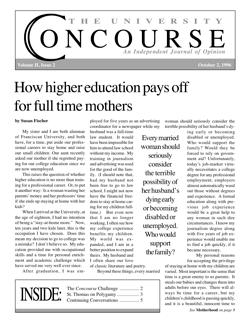Polygamy and name calling
by Jeff Ziegler
I find it difficult to believe that one would attempt to justify polygyny (the kind of polygamy in which one husband has several wives) by appealing to the natural law. Revelation teaches us that at the creation of man, long before Our Lord raised natural marriage to the dignity of a sacrament, God willed that the marriage bond exist between one husband and one wife. Moreover, the Church, which “call[s] men back to the observance of the norms of the natural law, as interpreted by her constant doctrine” (Paul VI, Humanae Vitae #11), does not teach that polygyny is forbidden solely by positive moral law; rather, she teaches that both forms of polygamy, like divorce, are contrary to the nature of marital love. The Catechism of the Catholic Church teaches that polygamy “directly negates the plan of God which was revealed from the beginning” (#2387, emphasis mine). Like divorce, it was an evil tolerated in the Old Testament as a concession to man’s hardness of heart (#1610).
As sympathetic as I am with the content of Mrs. van Schaijik’s article, I am disturbed by her characterization of her opponents, whom she judges guilty of chauvinism. Such a term reminds me of political discourse at my alma mater. There, if you opposed abortion, your views were deemed sexist; if you opposed racial quotas, you were called a racist; if you defended the prudence of the Holy See’s diplomatic policies of the time towards Israel, or defended the civil law’s preference for heterosexual marriage, your views were accordingly branded anti-Semitic or homophobic. Now chauvinism does exist, just as sexism, racism, anti-Semitism, and homophobia do; but is a man who believes polygyny in conformity with the natural law, or a woman who holds the same about polyandry, necessarily a chauvinist? I think not.
If a few Asian-American acquaintances serenely claimed that Asians, as a race, were intellectually superior to Caucasians, said that St. Thomas backed them up, and attempted to prove their case using SAT scores, I wouldn’t accuse them of racism. Instead, I would invite them up to my apartment for cigars, ask them to state their case in the strongest possible terms, take the trouble to inquire where St. Thomas makes that claim, and try to understand the truth in their position. If, afterwards, I was moved to write an article criticizing their views, I would not entitle it “the horror of racism and the persistence of bigoted theories in Catholic academia.” Can’t we disagree with our opponents without using loaded words that have ruined careers at other institutions? And wouldn’t such courteous restraint in diction be more in accord with the best traditions of the University Concourse?
Jeffrey Ziegler, Development Office
Kathleen van Schaijik replies:
My thanks to Jeffrey Ziegler for the references, and for the subtle verbal clarification: checking Webster’s, I find that polygyny is indeed the proper word for the situation of several wives to one husband, while polygamy refers to one of either sex having several mates. More importantly, I thank him for holding my feet to the fire as regards the Concourse’s commitment to courtesy in discourse. I wrote my article in a moment of indignation. Perhaps the discussion would have been better served had I waited until I was calmer—but then, though its tone might have improved, some of its immediacy would have been lost.
In any case, grateful as I am for his concern, I must take issue with the substance of his complaint against me. The comparison with the irrational, fear-mongering PC crowd at his alma mater is unjust. It does not allow for the distinction between name-calling and calling things by their proper names. While it is of course absurd and worse-than-unhelpful to brand everyone who opposes Israel’s foreign policy an anti-Semite, it would be something else entirely to charge someone who thinks all Jews should be eradicated because they are secretly conspiring to destroy Christendom with anti-Semitism.
The title of my article was chosen for its accuracy, not for its shock value. The theory is chauvinistic. And to call a spade a spade is often the first step in dispelling an illusion or defeating an error.
Neither did I judge these students guilty of the moral evil of chauvinism. I was careful to say instead that the theory they defended was chauvinistic, because it holds, in essence, that men have a natural right to dominate women. And, although intellectual errors and moral failures are usually linked, I do not for a moment suppose that every person who utters a chauvinistic idea can be fairly considered a full-blown chauvinist. On the contrary, it is in part because I expected that the deeper intentions of these Catholic men is to do justice to women that I was so quick to point out the chauvinism of their thinking. My hope was that once the horror of it is made apparent to them, they would gladly repudiate it.


